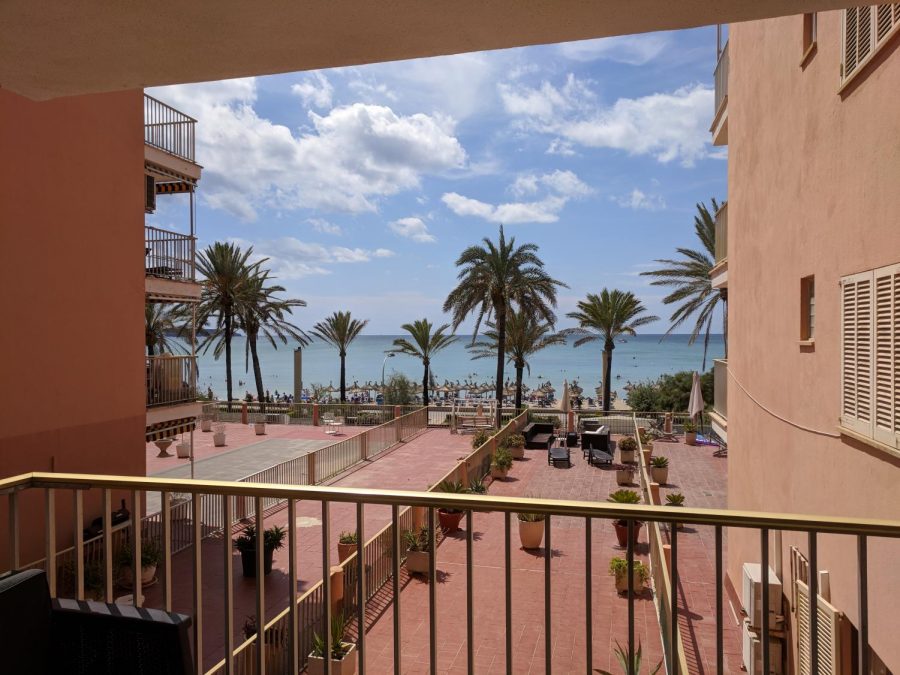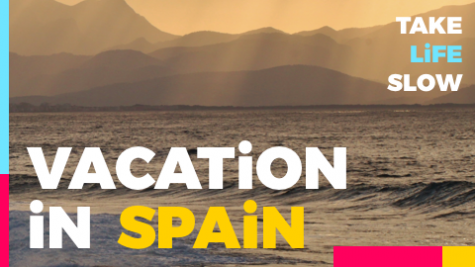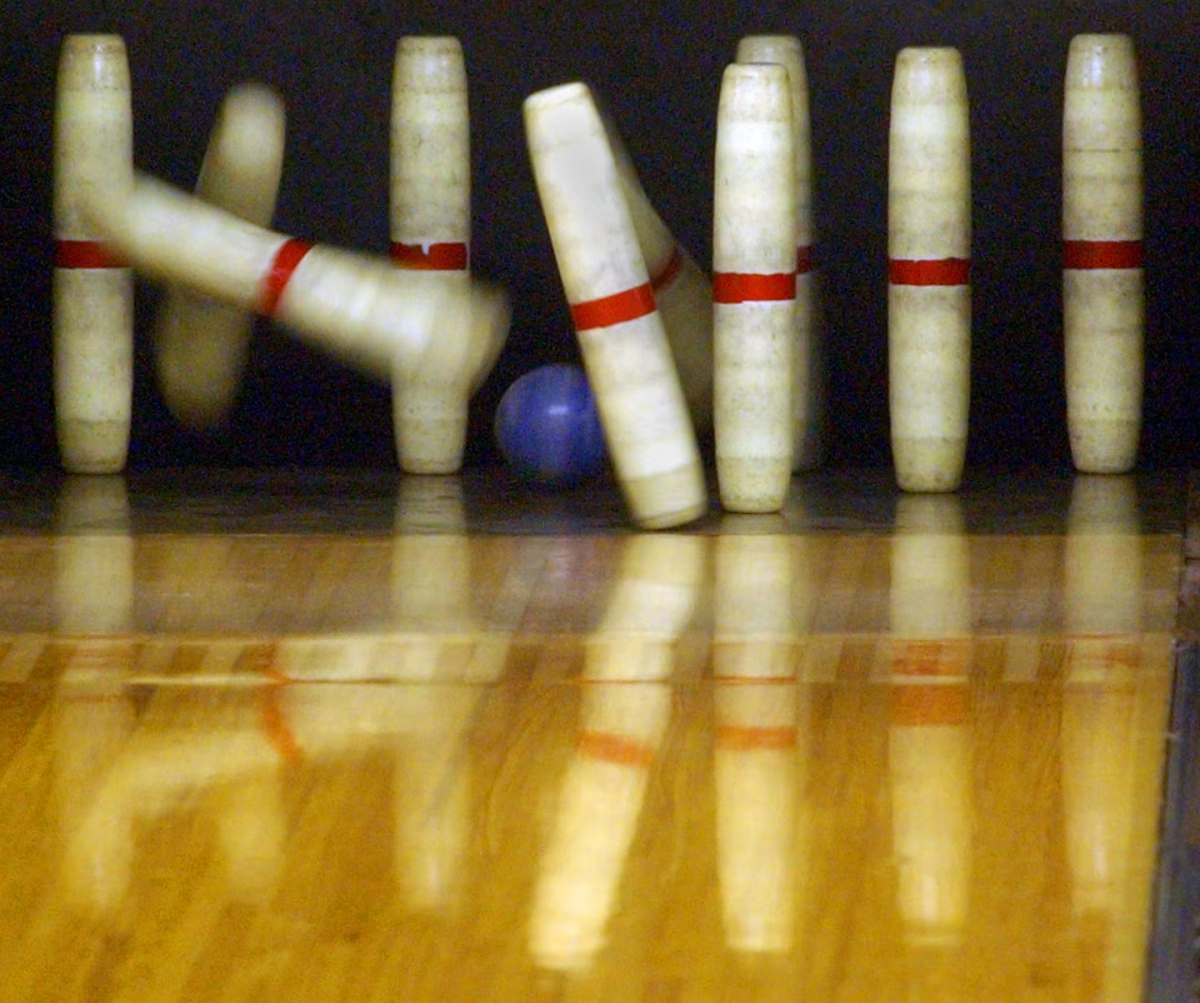I am writing from the balcony of an airBnB in Palma de Mallorca, Spain, overlooking a serene, blue Mediterranean Sea and waving, washed-out palm trees. What a beautiful view—yet I have trouble enjoying it. Why? Because of a seemingly unimportant reason: the WiFi doesn’t work.
I usually write research-based articles, but today I am giving you this think-piece because I can’t connect to the internet to read any academic journals. And also because I feel I have to write about the reason I feel almost nervous, unsettled and agitated without the internet—agitated, I’ll add, to the point where I berated our host for claiming to have WiFi.
At four in the morning, I found myself sitting on the beach-side porch of a Barcelona night club, talking to a girl from a nearby town. She had just graduated college, and somehow, our conversation drifted into the differences between the Spanish and American school systems. She was telling me that the Americans she had met usually seemed very concerned and serious about going to a “good” university, getting a “good” job and achieving a “good” social and professional standing. We talked about how relaxed Spaniards were, on the other hand – some go to college, some don’t and no one really cares either way.
I mentioned how, at my high school, everyone was so concerned about going to the “right” place. It was so important to get into a big-name school with a big reputation. She told me people in Spain don’t really worry about that. For them, college is a step that some people take to go in a specific direction. For us, college is a necessity, and we are convinced that the quality of our lives depends on how “good” the school we attend is.
And I’m sitting here sweating over not having internet because it makes it impossible to prep for the coming school year.
I had an epiphany. I’m so used to an intense, fast-paced and work-oriented lifestyle that I find it difficult to slow down, disconnect and relax for a little while. I’m in a circle of friends who seem to have their careers figured out and who are making big moves to get them going. How old are we? 19? 20? 22, at most? We’re so young! Meanwhile, my friends abroad in the Dominican Republic and a few people I met here in Spain are out working odd jobs, exploring and travelling where and when they can, taking life slowly and enjoying the ride. Yes, they’re also making moves towards their careers, but in a more relaxed way. Exploring what they like to do first. Getting a concrete feel for what kind of life they want to lead.
Suddenly, I began to question the pace of my own career.
Yeah, maybe if I worked hard I could have a PhD or a stable job by my late 20s. But what stories would I have to tell? What people would I have met along the way? And who’s to say that life is less enjoyable when taken mas lentamente, focusing on meeting and connecting with people and experiencing what the world has to offer?
And who’s to say I’d even enjoy the path I’ve chosen for myself at the ripe age of 28? So many people in America seem to rush into careers they know nothing about. Sure, they know the qualifications and they’ve read about the responsibilities needed for such jobs. But do they actually know what it’s like to work them? No.
I’m not advocating to drop everything and become a homeless nomad travelling the world with two pairs of underwear, sandals and a canteen of lukewarm water tasting of iodine tablets. All I’m trying to say is that we too easily seem to get caught up in a small circle of spiraling achievements and titles and money and we forget that we have the rest of our lives ahead of us. What’s the difference between entering a graduate program at the age of 22 or 26? A few years of real living. Real experience. Real conviction in knowing yourself and what you want to do before committing tens or hundreds of thousands of dollars and several years of schooling toward a career.
One great thing I’ve learned from talking to adults at UMass and elsewhere – most of them ended up in places they never would have expected. Going into this semester, I just ask you to keep in mind that your options are more open than you think. Opportunities will be available to you for years to come, and in fact, you should explore as many of them as possible. Don’t confine yourself only to those you see now.
Study abroad if you can. Take the opportunity to travel to foreign countries or even other states. Meet and talk to everyone you can; every single person on this planet knows something you don’t. And, most importantly, aim to collect experiences, not titles and money.
Here’s to the end of a somewhat corny message and to the start of a great semester.
Nicholas Remillard can be reached at [email protected].






















Amy • Sep 10, 2018 at 10:10 am
Yeah man… just relax, take it easy,, enjoy life.
It sounds like stoner advice distilled into a collegian column. Another brilliant original op-ed